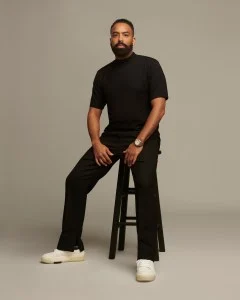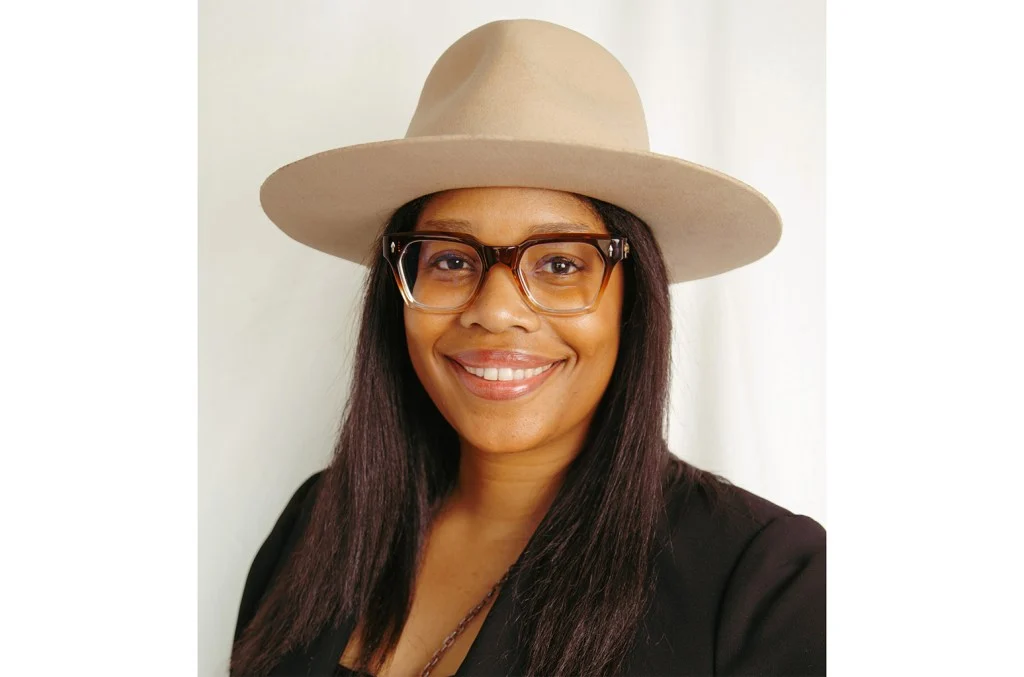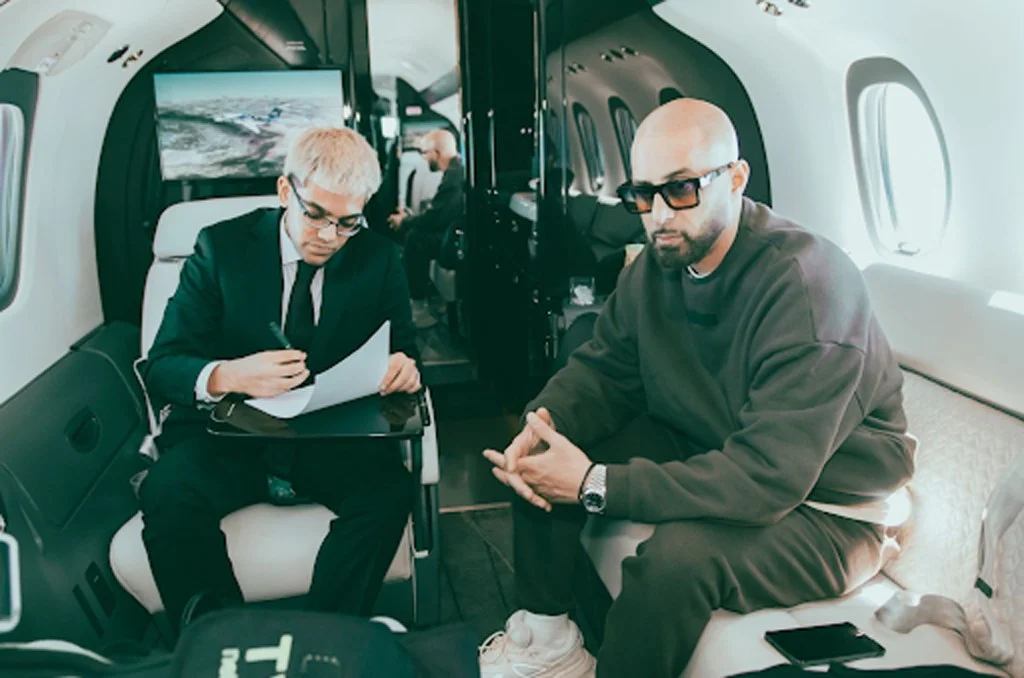Record Labels
Page: 8
Candice Watkins has been named president of Capitol Records Nashville and executive vp of Capitol Christian Music Group.
Watkins’ new role comes as Capitol Music Group brings Capitol Christian Music Group (CCMG) and its country division, Capitol Records Nashville, under the Capitol Music Group Nashville umbrella. Artists who were previously signed to Capitol Records Nashville will remain at the newly formed Music Corporation of America (MCA) Nashville label.
Capitol Christian Music Group, which includes Motown Gospel and Tamla and distribution operations, will continue to be led by its longtime president, Nashville-based Brad O’Donnell, whowill continue to report to Tom March. CCMG is home to artists including Chris Tomlin, Anne Wilson, Tasha Cobbs Leonard and Josiah Queen; it also publishes the song catalog for gospel music luminary Kirk Franklin.
Watkins previously served as senior vp of marketing at Big Loud Records, working with artists including Morgan Wallen, HARDY, ERNEST, Stephen Wilson Jr. and Hailey Whitters. Prior to her work at Big Loud, Watkins served in marketing and artist development role at UMG Nashville and held positions at Red Light Management, Mozes Inc., Borman Entertainment and Cross Point Church.
Trending on Billboard
Capitol Music Nashville is located on Martin Street in the Wedgewood Houston area of Nashville in a 40,000-square-foot space that includes state-of-the-art recording studios, a live performance space and content studios. It will have the support of the Capitol Tower in Los Angeles for all label services.
“This reorganization reflects our commitment to growing our Nashville operations as a core creative hub in Christian, gospel and country music,” said Capitol Music Group CEO Tom March in a statement. “We’re looking forward to signing and developing the next generation of country artists on Capitol Records Nashville and are thrilled to have an executive of the caliber of Candice Watkins to lead our ambitious plans in country music while also bringing her expertise to our gospel and christian music operations.”
“This new structure will empower our Nashville executives to better serve the incredible artists on our roster. Candice is a brilliant music marketing executive who has an amazing track record in developing career artists,” said John Janick, chairman of Interscope Capitol. “Having her lead our country music business in Nashville and also add her extensive artist development expertise to our CCMG team is going to be great for our artists and for the entire executive team.”
Watkins commented: “It’s a true honor to step into the role of President of Capitol Records Nashville and EVP of Capitol Christian. These labels have a rich legacy in partnering with some of the most brilliant artists of our industry and I look forward to contributing to its continued success and cultural impact. Excited to collaborate with John, Tom, Lillia and Brad in boldly championing creatives and visionaries.”
So far in 2025, the No. 1 slot on the Billboard 200 albums chart has regularly been filled with some familiar faces: SZA, Lil Baby, Bad Bunny, The Weeknd, Kendrick Lamar, Drake, Lady Gaga, Ariana Grande. So this week’s chart — with Swedish hard rock band Ghost, as shadowy and mysterious as its name implies, coming in at No. 1 with its latest album Skeletá — may seem like an anomaly to most casual music fans in the U.S.
But it’s not a surprise to Ghost’s longtime fans, nor to its label, Loma Vista. And for those paying attention to the group’s growing lore over the years, it seems like it may have been a long time coming. Since first debuting on the Billboard 200 in 2013 with Infestissumam (No. 28), the group has steadily climbed up the chart with each subsequent full-length studio album: 2015’s Meliora (No. 8) was its first top 10, followed by 2018’s Prequelle (No. 3), 2022’s Impera (No. 2) and now, Skeletá’s chart-topping debut, which marked the group’s biggest sales, streaming and equivalent album unit mark in its career so far. And with that steady growth, not to mention the big album week, Loma Vista director of marketing Todd Netter is Billboard’s Executive of the Week.
Here, Netter breaks down the band’s growing fan base, the clever marketing tactics that went into Skeletá’s rollout and what this could mean for the band, and the hard rock genre, overall. “There are a ton of decisions, small and large, that go into a successful marketing campaign,” Netter explains. “A successful album marketing campaign really is a series of interconnected decisions, tied together by strategy, creativity and execution.”
This week, Ghost landed its first-ever No. 1 album on the Billboard 200 with Skeletá. What key decisions did you make to help make that happen?
With Ghost, our goal is to always make creative decisions with clear intent at very pointed moments, like which songs to lead with and what the vehicle is for rolling those songs out and when; how to eventize the album announcement to generate maximum attention and enthusiasm amongst their large global fan base; and how to rev up that fan base going into release day. An example of such a decision was committing to creating “The Satanizer” — a first-of-its-kind music video experience for fans who wished to be “Satanized” — which was the title of Ghost’s first single, launched alongside the album announcement. “The Satanizer” morphed its users into characters featured in the song’s melodramatic music video.
With a quick upload of their photo, “The Satanizer” sent out a personalized music video clip featuring the participant, who in turn could share via social media that they too had been “Satanized.” Strategically, it was a decision to create a moment at the launch of the campaign that personalized the experience of new Ghost music while simultaneously encouraging fans to create UGC on their socials. A powerful one-two punch that drew die-hard fans in while inviting other more casual music fans to pay attention. And, most important, it was a decision to have fun with this album campaign from its very launch.
This is the band’s fourth full-length top 10 album in the past decade, with each release achieving a higher position each time. What has gone into helping them build their career to get to this point?
We at Loma Vista fundamentally believe Ghost’s music and their vibrant fan community is for everyone. They have a sound and general appeal that draws people in. So we’ve made a very concerted effort at developing their passionate and creative fan community. It’s an immersive fan experience, rewarding for the most committed of fans and welcoming to the curious. An experience rich in storyline — we call it “lore” — chock full of creative content, loaded with call-to-action drivers for the fan base, and all culminating in real-world activity for the fans to attend, be it pop-up events, concerts — aka “rituals” — or feature film cinema screenings. It’s a fan-focused experience that is constantly evolving, mysterious, fun and always centered around the music of Ghost. And this has proven great for attracting more fans, be it by word-of-mouth, or simply by being a beacon to those who feel misunderstood but are proud of their creative and unconventional points of view in terms of music and culture. Focusing on Ghost’s fan community has allowed us to expand their audience size and the impact of the band, album over album, for the last decade.
The album also made a global impact, debuting at No. 1 not just in the U.S. and in Ghost’s native Sweden, but also in countries like Australia, Germany, Belgium and Switzerland, and at No. 2 in the U.K. How did you set it up to make such a big debut worldwide?
It starts with our unwavering belief that Ghost’s music is universal. We’ve always seen our marketing campaigns for Ghost albums as worldwide endeavors. As a label, we have a global footprint with label marketing teams located in key cities across the globe including London, Berlin, Toronto, Mexico City, Sydney and Tokyo, allowing us to strategize, prep and execute globally. So any time we cook up an initiative or fan activation, we have teams positioned around the world to help us ensure the idea is executed properly in local territories, be that via social media, real-world events, or via hybrid experiences where we blend the two things.
A great recent example of that in our Skeletá album campaign were the Midnight Sales and the complimentary online album countdown event that we staged to celebrate the release of the new album. I knew we had a global fan base, one that loves to dress up and participate with other fans. I also knew Ghost’s sound and aura can harken back to previous eras of rock’n’roll, and that the album’s release was heavily anticipated by the band’s passionate fan base. We created Skeletá-Eve Midnight Sales, a series of events at 150 independent record stores around the globe, where fans could gather, listen to the album together for the first time and purchase it the minute the clock struck midnight. And for fans not near one of these many stores, we created Skeletá Rockin Eve, a global live stream event where fans tuned in at midnight locally to count down together the release of Ghost’s new album and hear new music. Coordinated timing-wise, thematically complementary, and global in scope. An example of how our strategy and execution allow us to cultivate a global fan base and have a major impact with Ghost’s music around the world.
Ghost has a very particular aesthetic and look. How did the marketing campaign for this album differ from prior releases, and from other acts on the label?
Ghost are the most unique-looking band in music. They stand out, and the way they look is an instant attention-grabber for any onlooker. But it’s not just sensational — their appearance has a very strong creative point of view and a sophisticated design intent. They challenge norms and push boundaries in terms of rock’n’roll presentation, and music fans gravitate toward that.
That said, I’m not sure our approach on this album cycle differed so much as it evolved. Their photos, wardrobe, stage design and overall aesthetic continue to elevate, album over album, and so our marketing campaigns aim to match that elevation. We look at every visual facet of our marketing campaign, be it vinyl jacket materials, music videos, band photos, band store merch, social media platforms, magazine covers, out-of-home billboards, etc., as an opportunity to establish Ghost’s creative point of view, to leave a meaningful impression on their fans and the public in general. As the band’s growing popularity collides with loftier opportunities coming their way, it enhances our ability to enrich the band’s overall aesthetic, music presentation and visual world. Our marketing campaigns have always been heavily integrated with the band’s aesthetic, so it was an evolution on Skeletá, not a different approach.
The album represented Ghost’s biggest sales week ever, but also its biggest streaming week ever. How did you balance each to get such a big debut?
The easiest explanation is the band’s audience grew a ton. Following a very successful IMPERA album campaign, viral TikTok moment for “Mary On A Cross,” and a No. 1 feature film, Rite Here Rite Now, the band simply had a lot more fans. That said, the Ghost fan base is not a monolith, nor is the music consumption landscape these days. I knew we needed a comprehensive plan to tackle all the different ways people listen and consume music these days, to best understand what motivates people to listen and how they choose to do so.
We had specific marketing plans for each streaming service, with specific platform targets and goals so that we could best position the band and their music. We took a similar approach with physical formats, creating 30 vinyl formats worldwide, as well as multiple CD and cassette formats, working with specific retailers from independent record stores to big box stores to boutique online retailers. The final component was creating a really rich and rewarding experience on the band’s webstore, offering special formats and early access to drive home the connection between the band and their fans. The music consumption landscape is fractured these days. We understood we’d never be able to funnel fans to one place, so instead we dug in and really catered to every platform and retailer’s strengths and customer base, to reach Ghost fans where they were.
This is also the first time in four years that a hard rock album has reached No. 1 on the Billboard 200, since AC/DC’s Power Up in 2020. What is the significance of that for the genre, and what can you take away from that?
I’m a little hesitant to wax poetic about knowing exactly what Ghost’s accomplishment can mean for a whole genre of music. Nor do I think of Ghost as simply a rock band. I do think their music, presentation and overall appeal transcend genre — they’re simply Ghost in my mind. But so far as I can offer a little professional and personal insight into what this means for hard rock, it never hurts when a band achieves something big like this for other bands in their genre. It shines a light on a sound and puts the genre in the zeitgeist alongside arguably more popular genres and artists. The spotlight should open doors for other bands and labels looking for opportunities, as it’s “proof,” in an industry validation sort of way, that the sound and genre have some cultural cachet.
I think with real people, average music fans and listeners, genres are becoming less and less important. Most people’s tastes bounce all over the place and artists are constantly crossing genres and audiences. More anecdotally speaking, and where my optimistic side takes over, maybe Ghost hitting No. 1 on the album charts inspires some young kids to pick up a guitar or learn to play the drums, instead of opening up a laptop, and a whole new generation of bands are formed.
This is Loma Vista’s first-ever No. 1 album on the Billboard 200. What does that mean for the label?
It’s terrific! We made a promise to our roster of artists that we’d match their vision and aspirations for their music and their careers. And this might sound cliche, but this team of people wakes up every morning with that artist commitment front of mind. None of us are personally motivated by accolades or awards. Instead, Ghost debuting at No. 1 drives home what we believe as a label: that with great music, strong creative vision, a commitment to collaboration, hard work, and an unwavering belief that anything is possible, special things will happen. A No. 1 album on the Billboard 200 reinforces that we’re right about the philosophy we take when signing and working with artists. And if I’m honest, it’s also just a really fun week for a record label when one of their artists goes No. 1.

Rob49 is officially a music executive. The New Orleans rapper has launched his VULTURE MODE record label, which arrives as a joint venture with independent record label and publisher SLANG.
While entering his prime as a rapper in his own right, Rob is looking for the next generation of stars in hip-hop. The label isn’t wasting any time as fellow New Orleans native Moskino is the first artist signed to VULTURE MODE.
“I always knew I would be successful outside of music, but I thought more so as a serial entrepreneur who owns a bunch of businesses,” Rob49 tells Billboard. “But music is something that I naturally gravitate to, and I honestly feel like I have the ear to know who’s the next hot artist.”
Trending on Billboard
He continues: “And with that, I’m surrounded by a bunch of new young talent that is trying to make it out the trenches, so what better way to use my platform than to become a music executive and help bring their careers to life.”
Moskino is gearing up for a busy summer with the release of his King of the Underdogs project slated to arrive on June 6.
“Moski wanted to be a rapper long before I even wanted to,” Rob49 adds of the first rapper joining the VULTURE MODE family. “And I think he’s one of the hardest out of not only New Orleans, but in general. His ability to story-tell while maintaining his own unique sound, creating a new lane with that New Orleans style… It’s something that I think is very different and refreshing.”
Rene McLean
Aviva Klein
Founded by Influence Media’s Rene McLean, SLANG has built a reputation as a reliable creative partner for the likes of Future, DJ Khaled and Will Smith over the years.
“We’ve always believed in building platforms, not just moments,” says McLean. “Partnering with Rob49 to launch VULTURE MODE was a natural step. He represents everything SLANG values, originality, vision, authenticity, and a relentless work ethic. Together, we’re building something that’s not just reactive to culture, but ahead of it.”
As far as his own artistry, Rob49 caught fire with his viral cultural hit “WTHELLY” and is slated to drop another project later this spring.

Indie digital rights group Merlin has announced its first partner for Merlin Connect, an initiative designed to help emerging social and tech platforms license music while increasing payouts for indie artists.
On Thursday (May 8), Merlin revealed that it has partnered on the initiative with Nina Protocol, a music platform and direct-to-fan marketplace that’s described in a press release as “built to empower independent artists and labels through fair economics, direct payments, and tools for directly engaging their communities.”
Through the initiative, which was unveiled last June, Merlin will provide chosen platforms with music, API-backed operational infrastructure, and support and mentorship — including access to industry experts and collaboration with Merlin members — to help supercharge the platforms’ growth.
Trending on Billboard
“Through Merlin Connect, we’re investing in a future where quality independent music is foundational to digital innovation,” said Jeremy Sirota, CEO of Merlin, in a statement. “It’s about identifying partners like Nina Protocol whose mission, principles, and passion align closely with our own, and providing them with licensing solutions and dedicated support to help them thrive. Nina’s approach to artist empowerment, transparent monetization, and platform independence makes them a powerful partner for our members and a standout among emerging platforms in the space.”
Founded in 2021 by Mike Pollard, Eric Farber and Jack Callahan, Nina Protocol allows artists and labels to grow release earnings via direct-to-fan sales while keeping 100% of digital sales revenue. It also lets fans “unlock perks” when they support artists and discover music “through both lean-back listening and active ‘crate-digging’ exploration,” according to the release, which adds that Nina Protocol “is known for its high-quality editorial content — designed to feature artists, scenes and new releases.”
“We believe the future of music is independent,” said John Pollard, COO at Nina Protocol. “In Merlin, we have found an ideal partner with an impressive track record of demonstrating how independent music can come together to secure its own digital future. This partnership connects Nina with Merlin’s diverse global membership, providing high-quality catalog and crucial insights that will help us continue to build technology that serves the independent music community and strengthens the independence of artists and labels worldwide.”
Prior to the partnership, Merlin members were already using Nina Protocol to build artist-to-fan communities. This included Mad Decent artist LUCY participating in a Q&A on the platform; artist Harto Falión being featured in a “Nina Interview Vid”; Warp Records’ OPN taking part in a Nina interview; and artist Wu-Lu engaging fans in a Q&A session. Through the partnership, the release says, Merlin Connect will work to “bring Nina’s impact to the wider Merlin membership.”
Merlin Connect content is slated to launch on Nina Protocol this summer.
Warner Music Group has announced the beta launch of WMG Pulse, a new bespoke platform designed to provide artists and songwriters with helpful insights into their streaming performance, fan engagement and even earnings.
The label said WMG Pulse will consolidate real-time data from various sources into a single view, offering detailed information on streaming, audience, social media and user-generated content (UGC) performance. Additionally, Pulse provides an up-to-date snapshot of an artist’s earnings across royalties, physical sales, sync deals and more.
The platform aims to support artists and songwriters at all stages of their careers, whether they are managing a diverse catalog or striving to achieve their first major hit. Currently, WMG Pulse is in beta testing with over 100 WMG artists and songwriters, who will provide feedback to developers. In the coming months, WMG Pulse will incorporate features such as forecasting, release planning and collaboration tools based on that input from beta testers.
Trending on Billboard
For now, Pulse will complement WMG’s other analytics tools, one being AMP, which is designed for artists and managers. According to a WMG spokesperson, the in-house created Pulse offers significantly more data and insights than the other tools, although it does incorporate some of the best features from them. As Pulse evolves and adds new functionalities — and exits its Beta phase — it is expected to eventually become the label’s comprehensive locale for all artist analytics needs.
The platform is currently available to a limited group of WMG artists and songwriters and will be widely rolled out later this year.
Ariel Bardin, president of technology at WMG, emphasized the platform’s role in providing greater transparency across the music ecosystem, “including data from every major streaming and social media platform,” adding, “the app offers a seamless, easy to use experience, giving deeper insights into careers and fan bases, with even more sophisticated updates still to come. It’s about empowering artists and songwriters with clarity, and helping them make smarter, data-driven decisions with their teams.”
Other major label platforms offering real-time insights for artists include UMG’s Universal Music Artists and Sony Music’s Real-Time Insights, among others.
Illenium has signed with Republic Records. The move comes after the electronic producer’s tenure at Warner Records, where he released two albums dating back to 2021. Prior to that, he was signed to UMG and the indie labels Seeking Blue and Kasaya Records.
“This is a completely new chapter for me,” the artist born Nick Miller tells Billboard of signing with Republic. “When I had my meeting with Republic, I just felt a family sort of love. I want people working my music that are as passionate as I am and truly have my best interest in mind. Republic absolutely has that for me.”
“I just felt an energy at Republic that was really inspiring,” he continues. “They’re also the best at what they do, so it’s hard to even consider anywhere else.”
Trending on Billboard
Illenium says that within the next six months, he’ll reveal information about a new project that he calls “my most ambitious, without a doubt.” He doesn’t say whether or not this project is a new album, but notes that “I’m working every day, but don’t have an exact ETA yet. But I’m moving at light speed.”
The last Illenium album was a 2023 self-titled project and an attendant remix album. Since then, the Colorado-based producer has released a handful of singles and remixes. His forthcoming work will include what he calls “a sick drum n bass style song” with Kid Kudi. He also says that “Ryan Tedder and I wrote something beautiful with Amy Allen and Lostboy,” and there additionally is “a bunch of other stuff that’s awesome but not ready to share yet.” On Tuesday (May 6), Illenium and Hayla also teased a new collaboration they say is “coming soon.”
“We are thrilled to welcome Illenium and his expert team to the Republic family,” Glenn Mendlinger, the evp of Republic Records and president of IMPERIAL & Casablanca Records tells Billboard. “The world he has created and the fandom he has built over the last decade is nothing short of remarkable. Nick is a true pioneer in the electronic music landscape and has carved out a lane that is distinctly Illenium. His anthemic, emotional music and signature production has touched people globally and his landmark live shows have created incredible communal moments for his fans. Together our ambitions are grand and the team is already setting up for a historic year ahead.”
In addition to his recorded music, Illenium has carved out a wildly successful touring career, becoming one of the few electronic artists able to play and sell out stadiums and arenas. His Trilogy shows have taken place at a handful of stadiums across the U.S., with a 2023 show in Denver grossing $3.9 million and selling 47,000 tickets, according to numbers reported to Billboard Boxscore.
Content creator and streamer N3ON has signed a record deal with EMPIRE, the company tells Billboard. Through the agreement, which EMPIRE calls the first of its kind with a streamer, the label will release a collaborative project from N3ON and his network of creatives. Jake Moritt at Proper Loud, a management company that specializes in […]
Create Music Group (CMG) has acquired indie electronic label Monstercat.
Founded in Waterloo, Canada, in 2011 and now with offices in Toronto and Los Angeles, Monstercat will continue to be operated by president Daniel Turcotte, vp Orri Sachar and director of finance Rob Hill. Monstercat founders Mike Darlington and Ari Paunonen will have advisory roles.
The acquisition will provide Monstercat with access to CMG’s global infrastructure, media portfolio and capital — enabling it to offer more competitive deal structures and better marketing support while expanding its global presence.
Beyond the acquisition, Create plans to invest an additional $50 million into the label over the next two years, with the money specifically going towards artist development, advances, and support for new signees and longtime roster artists.
Since 2011, Monstercat has released more than 8,000 recordings from artists across the electronic spectrum, including Kaskade, Alan Walker, Vicetone, Punctual, Whipped, DJ Diesel (the artist name of Shaquille O’Neal), Koven and more. Monstercat sublabels servicing various subgenres include Uncaged, Silk and Instinct.
Trending on Billboard
“Our mission has always been to build sustainable, long-term careers for exceptional artists,” Turcotte said in a statement. “Create gives us the reach and support to do that at a larger scale, without changing what makes Monstercat special. We’re still artist-first — only now with more tools to serve them.”
“Monstercat is everything an independent label should strive to be — exclusive, globally trusted and capable of breaking artists and songs at the highest levels,” added Create Music Group co-founder/CEO Jonathan Strauss. “Mike, Ari, Daniel, Orri, and the entire Monstercat team have built a culture and community at a scale rarely achieved in the music industry. We are excited to support their mission.”
The news marks the continuation of a recent acquisition spree by Create, with the company announcing in March that it acquired both the deadmau5 catalog and the catalog of the producer’s mau5trap label in a deal valued at $55 million. In April, it announced its acquisition of longtime indie electronic label !K7.
In 2024, Create received $165 million in backing from private equity company Flexpoint Ford, with Strauss at the time saying that the money would be used to scale operations, expand services and fund acquisitions.
The company is now aggressively pursuing acquisitions and investments in key indie labels and artists, with a goal of building intellectual property that can be successfully exploited via its platform. A representative for Create says this platform includes distribution and an owned audience that generates more than 200 billion monthly music streams on digital service providers.
Sara Nix and Joe Mortimer have been named co-heads of creative at Capitol Music Group, based at the label’s iconic Capitol Tower in Hollywood.
Nix joins Capitol after six years as executive producer at Partizan, the company founded by Eternal Sunshine of the Spotless Mind director Michel Gondry. With nearly 15 years of global production experience, she has worked with artists like Pharrell Williams, Billie Eilish and Burna Boy, and directors such as Warren Fu and Ally Pankiw. Her portfolio spans music videos, branded documentaries and short films for major lifestyle and brand clients. Nix began her career in Amsterdam and has led projects across continents.
“I’m thrilled to be joining the Capitol team,” said Nix. “It’s an iconic label with a rich history, and I’m excited to collaborate with the incredible artists here to help them bring their creative visions to life.”
Mortimer joins the mothership after serving as creative director at CMG’s Astralwerks since 2018, where he led global campaigns for Marshmello, Illenium, Zhu, and others, while also collaborating with Capitol artists like The Beatles and Katy Perry. He worked on the Grammy-nominated campaign for Troye Sivan’s Something to Give Each Other. Previously based in London, Mortimer was an art director for acts like Jungle and Bob Moses, and has collaborated with top creatives including Jack Bridgland and Hannah Lux Davis.
Trending on Billboard
In 2025, Mortimer co-created the California Picture Project, a photographic print sale that raised funds for the Los Angeles wildfires, with contributions from over 160 artists including Spike Jonze, Sofia Coppola, Gabriel Moses, Nadia Lee Cohen, and Petra Collins.
“Over the years I’ve worked closely with many of the executives and artists at Capitol,” said Mortimer. “I’m so excited to be taking on this role to steer the creative vision of the label along with Sara.”
The executive team at CMG includes former Geffen head Tom March as chair/CEO and UMPG veteran Lilia Parsa as president, replacing ex-CMG chair/CEO Michelle Jubelirer and president Arjun Pulijal earlier this year. These changes were part of a significant restructuring of Universal Music Group’s label organization, placing UMG’s West Coast labels — Interscope, Geffen, A&M, Capitol, Blue Note, Priority, Verve and Motown — under the oversight of John Janick as part of the Interscope Capitol Labels Group.
“Sara and Joe come to Capitol after having worked with some of the most acclaimed artists, directors and creative visionaries in the world,” said March. “Together they form a potent team to help the incredible artists on our label reach their full creative potential and drive our ongoing transformation at Capitol.”
Zach Bryan has re-upped with Warner Records, Billboard has confirmed.
The extremely prolific singer-songwriter has released three studio albums on the label since first signing with it in 2021: 2022’s American Heartbreak, 2023’s self-titled set and 2024’s The Great American Bar Scene. He’s also put out three EPS and two live sets. The Hollywood Reporter first reported the news, adding that the new deal is for at least two albums.
Bryan’s rise has been meteoric. Billboard named him its top new artist of 2023, and he has dominated at both country and rock since then. “I Remember Everything,” his duet with Kacey Musgraves, and “Something in the Orange” were the top two songs on Billboard’s 2024 year-end Rock Streaming Songs chart. That same year, he ranked third on Billboard’s Top Artists of 2024 and No. 1 on the Top Rock & Alternative Artist chart. His self-titled set became his first album to debut at No. 1 on the Billboard 200, and all three of his full-length Warner Records sets have bowed atop Billboard’s Top Country Albums chart.
Bryan has also been a critical favorite, earning four Grammy nominations, with “I Remember Everything” winning best country duo/group performance at the 65th annual Grammy Awards in 2024.
Trending on Billboard
He’s also a crowd favorite. After headlining the opening night of Stagecoach last month, Bryan is headed to Dublin for three shows in June and then will play BST Hyde Park in London on June 28-29. He will then return stateside for seven stadium shows, including three nights at Metlife Stadium in East Rutherford, N.J.
Bryan helped usher in a new wave of country-oriented acts signing with coastal labels, as Billboard reported in September. Bryan wasn’t the first country-leaning act signed by a major coastal label, but his massive success has proven that an act no longer necessarily needs the usual Nashville methods, including country radio, to break through.
Prior to the pandemic, Nashville labels generally had a lane to themselves when it came to signing country artists, with their relationships at country radio giving them almost exclusive access within the genre. But once COVID hit and touring slammed to a halt, labels became laser-focused on data and analytics as the only available metrics to gauge an act’s success. The coastal labels saw tremendous opportunity and jumped in, with New York and Los Angeles labels signing country-leaning acts with strong streaming numbers and a high TikTok engagement rate, including Warren Zeiders (Warner Records), Koe Wetzel (Columbia), Dasha (Warner Records) and Ella Langley (Columbia); or jointly with a Nashville partner, such as Megan Moroney, who is signed to both Columbia and Sony Nashville.
Warner Records declined to comment on the news.

 State Champ Radio
State Champ Radio 








